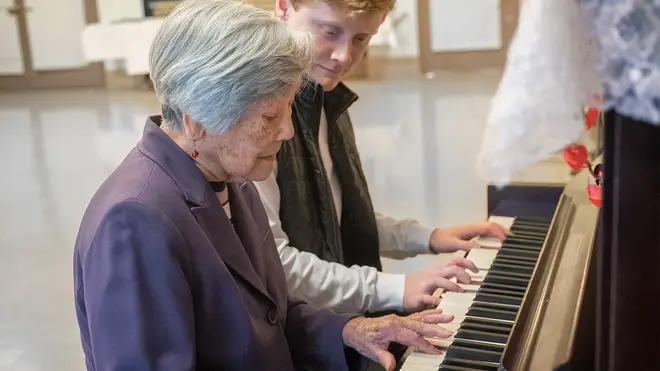Scientists find taking up piano lessons at older age could delay dementia onset
4 April 2022, 17:35

A new study shows evidence that learning to play the piano could preserve memory function in healthy older adults.
There is already proof that learning a musical instrument is associated with the brain’s ability to change and adapt, and that music can help protect our brains against cognitive decline with age.
Now, a new study has investigated how six months of piano training can affect the brain compared to simply listening to and learning about music, in healthy older adults who have had no formal musical training.
The study, carried out by researchers in Germany and Switzerland, found that the fornix – a region in the brain associated with memory – degenerated at a slower rate in adults who actively took part in piano lessons compared to those who didn’t.
Based on previous evidence showing that playing a musical instrument could “promote healthy ageing”, researchers from various universities across Hanover and Geneva wanted to investigate the physical effects that learning a musical instrument over a longer period of time had on the adult brain.
Read more: ‘Music for people living with dementia is a necessity’, says national campaign

Ballerina with Alzheimer’s listens to Swan Lake, and it all comes back
121 healthy adults aged between 62 and 78, who had fewer than six months of extracurricular musical training, took part in the study, which saw them split into two groups.
Over a six-month period, the first group took part in piano lessons with an hour of tuition each week, and 30 minutes’ daily practice as homework.
The second group learned about music genres from classical to pop, as well as learning about instruments and composers, but did not take part in active music-making. They were also given homework to actively listen to music, read texts and prepare presentations.
At the end of the six-month study period, the researchers found that the structure of the fornix in participants who learned to play the piano was stabilised. These results suggest that concentrated, regular music practice could help aspects of memory in older adults, and that piano training “may counteract naturally occurring age related decline of underlying neural structures”.
Read more: 101-year-old man with Alzheimer’s shows us all the eternal power of music
The loss of episodic memory is one of the first signs of Alzheimer’s, which is the most common form of dementia. Supported by evidence from previous studies, these new results show that “starting to learn to play the piano in later life might be considered an intervention in the challenge of delaying mild cognitive impairment and onset of Alzheimer’s in the elderly”.
Further research is needed in order to find out whether these positive effects need continued training in order to be maintained, but the results so far seem promising.


































